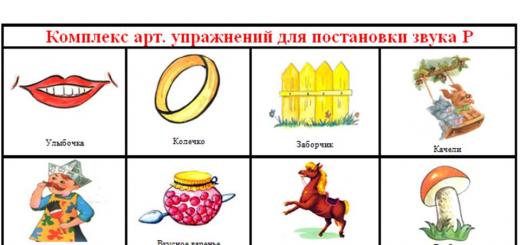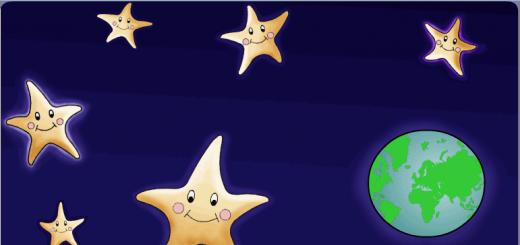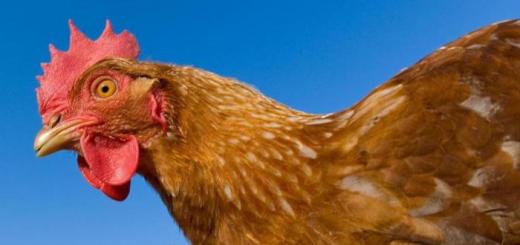1. Place punctuation marks. Write two sentences in which you need to put ONE comma. Write down the numbers of these sentences.
1) This parrot was a quarrelsome and noisy bird and poisoned the life of its owner and the whole house for a month.
2) In the evenings, the sun bathes in crimson fogs or burns dry on the edge of the steppe with a fire.
3) During the flight, you can take a nap or just dream.
4) In the Russian song, both timidity and rebellious freemen sound.
5) The moon rolled down over the horizon and the city slowly plunged into predawn dry darkness.
2. Place punctuation marks: indicate all the numbers in the place of which
Flowers (1) merging into a whole forest clearing (2) and forming an open space (3) upon closer examination, struck with the ideal shape of each corolla (4) framed by delicate petals.
3. Place punctuation marks: indicate all the numbers in the place of which
The sentence must contain commas.
Sometimes a thought will come that (1) seems (2) true, but you are afraid to believe it. However, then you see that that thought, which (3) may be (4) strange, is actually the simplest truth: once you know it, you can no longer stop believing in it.
4. Place punctuation marks: indicate all the numbers in the place of which
The sentence must contain commas.
In Greece of the classical era (1) for the social system (2) which (3) the form of the city-state is typical (4) especially favorable conditions arose for the flourishing oratory
5. Put punctuation marks: indicate all the numbers where
The sentence must contain commas.
A few hours later (1) Ivan became exhausted (2) and (3) when he realized (4) that he could not cope with the papers (5) he wept quietly and bitterly.
6. Indicate all the numbers that should be replaced by commas in the sentence?
Then (1) Sergius (2), taking one of the monks (3), went down from the monastery (4) located on the mountainside.
7. Indicate all the numbers that should be replaced by commas in sentences?
Pechorin (1) seems (2) passionately fond of hunting. Circumstances (3) apparently (4) changed, and fate itself laughed at him.
8. Indicate all the numbers that should be replaced by commas in the sentence?
Sanatorium "Specific" (1) construction (2) which took place in the fifties of the last century (3) became a health resort (4) of republican significance.
9. Indicate all the numbers that should be replaced by commas in the sentence?
Liza went to the deserted square (1) and (2) when her legs began to fall heavily from the round bald heads of the cobblestones (3) she remembered (4) how she was returning along this square after the first meeting with Valentine.
10. Select the sentences in which you need to put one comma. (No punctuation marks included.)
1) Nekhlyudov inhaled the strong smell of a young birch leaf and looked around the clearing.
2) Bears open old stumps and lick the honey of wild bees.
3) And in the chill, under a canopy and in the sun, ducklings settled down.
4) The forest and water and sandy hills burn with a crimson glow.
5) It got colder and it was urgent to look for a place to sleep.
1 45
2 134
3 34
4 14
5 345
6 234
7 1234
8 13
9 1234
10 35
Task 17 USE 2015
1 option
1. Crimson mountains in the Middle Urals (1) based on stories famous travelers(2) got their name due to the fact that raspberries grew in particular abundance along the ridges and placers. It (3) true (4) was smaller than the forest one, but, ripening in the sun, this mountain raspberry acquired a unique taste.
2. The language of poetry (1) as you know (2) cannot be ordinary, since the way to express yourself in iambs, choreas is unusual. Therefore, poetry is (3) one might say (4) the miracle of turning an ordinary word into a poetic word.
3. Trigorsky Park in the Pushkin Reserve (1) according to many (2) is saturated with the sun even on cloudy days. This park was created (3) as if (4) especially for family holidays, friendly conversations, laughter, playful confessions.
4. Sometimes a thought will come that (1) seems (2) true, but you are afraid to believe it. However, then you see that that thought, which (3) may be (4) strange, is actually the simplest truth: once you know it, you can no longer stop believing in it.
5. For the writers of the 18th century (1) of course (2) the essential difference between the then colloquial "living use" and the old literary language was obvious. This literary language correlated with Russian spoken language(3) according to linguists (4) the same as the language of the past with the language of the present.
6. In the past, many people were (1) of course (2) well-known Aksakov's house, where everything breathed creativity, family happiness and contentment. Friends of the family, numerous guests (3) probably (4) more than once had a chance to rest in this house from everyday squabbles and worries.
7. The leaves on the trees do not move, on a hot summer day they (1) seem to (2) shine through with emeralds, so you can see the lace of the veins. Only individual leaves suddenly sway (3) apparently (4) from a bird suddenly fluttering from a branch.
8. The July evening was wonderful, he (1) seemed to (2) throw a thin translucent fabric over everything. And the colors of the day (3) seemed (4) to fade slightly: the clouds slowly lost their reflections, the river surface turned pale.
9. The dark sky above the illuminated street (1) seemed (2) to be a black, heavy canopy. The sun and (3) it seemed (4) the sky itself were hiding behind the rocks.
10. Behind the distant woods (1) one can see (2) the lake. It was deserted around him. The villagers (3) can be seen (4) did not like this remote place very much.
11. Somewhere nearby (1) apparently (2) there was a waterfall. From the exclamation that escaped from my companion, I realized that the danger (3) could be (4) serious.
12. Among the poets of the Silver Age, A. Blok occupies (1) undoubtedly (2) a special position. He does not repeat other people's topics, but draws the content of his poems (3) exclusively (4) from the depths of his soul.
13. An amazingly pleasant experience (1) I remember (2) was for me to lie on my back in the forest and look up. Then (3) it seemed (4) the sky was a bottomless sea, spreading before the eyes.
14. What do dialect words mean? Undoubtedly (1) many dialect words refer to rural realities: the word "golbets" (2) for example (3) in the northern regions is called an extension near the Russian stove. However (4) there are many more such words that serve as local names for ubiquitous objects.
15. A.I. Kuindzhi (1) probably (2) D.I.’s bewilderment was especially expensive. Mendeleev, who tried to comprehend the secret of his "luminous" colors. The great chemist (3) of course (4) understood that the secret of "lunar" and "solar" colors lies primarily in the unique art of the artist.
16. The leaves on the trees do not move, on a hot summer day they (1) seem to (2) shine through with emeralds, so you can see the lace of the veins. Only individual leaves suddenly sway (3) apparently (4) from the movement of a bird suddenly fluttering from a branch.
Task 17 USE 2015.
Option 2
Place punctuation marks: indicate all the numbers in the place of which commas should be in the sentences.
1. Sometimes Ivan Petrovich Argunov (1) still (2) managed to completely surrender to inspiration. At such a joyful hour (3) probably (4) he created a portrait of an unknown young woman in a festive peasant dress.
2. A cheerful, carefree childhood (1) anyway (2) will someday end, but adulthood(3) of course (4) will require serious decisions and responsible actions.
3. At the Academy of Arts V.I. Surikov studied (1) according to him (2) “with terrible greed for studies” and with such diligence (3) of course (4) he graduated with a gold medal.
4. Petersburg guardsmen (1) it would seem (2) were engaged exclusively in organizing and conducting " palace coups” (3) however (4) they were not the blind tool of one group or another: the choice that the guards made almost always led the country forward.
5. The painful sincerity of L. Tolstoy and dissatisfaction with himself (1) of course (2) part of his living soul, but the most important thing for us (3) perhaps (4) is how the shoots spiritual development the writer germinate in his work.
6. Among the poets of the "Silver Age" A. Blok occupies (1) undoubtedly (2) a special position. He does not repeat other people's topics, but draws the content of his poems (3) exclusively (4) from the depths of his soul.
7. On one side (1) the mountains were silent, on the other side (2) the sea was noisy. On the one hand (3) cars are useful, and on the other hand (4) everyone knows the harm they cause to the environment.
8. A compliment (1) as you know (2) is a flattering, kind remark or a brief praise, and the ability to give compliments is a real art that requires tact, wit and (3) of course (4) attentive, warm attitude to the interlocutor.
9. I (1) confess (2) don't like aspen too much with its lavender trunk and grey-green metallic foliage. Aspen is good only on a windy summer day, when each leaf of it (3) as if (4) wants to break loose and rush off into the distance.
10. Animals in the forest make alert (1) there must be (2) even the rustle of falling leaves. The outline of the house under construction (3) seemed (4) like a ship.
11. A new book famous writer-publicist (1) maybe (2) you will like it. The sun on a hot July day (3) seemed (4) yellow-red.
12. Sometimes a thought will come that (1) seems (2) true, but you are afraid to believe it. But then you see that that thought, which (3) may be (4) strange, is actually the simplest truth: once you know it, you can no longer stop believing in it.
13. Here the sun touched (1) it seems (2) quiet water near the shore. The ocean (3) seems (4) asleep, quiet, not even the splashing of the waves is heard.
14. My brother (1) seems (2) to understand the importance of the upcoming events. Sometimes our class (3) seems (4) to me like a big friendly family.
15. The July evening was wonderful, he (1) as if (2) threw a thin translucent fabric over everything. And the colors of the day (3) seemed (4) to fade slightly: the clouds slowly lost their reflections, the river surface turned pale.
16. The reduction in production will be carried out (1) in the opinion of our analytical department (2) in several stages, between which (3) it is possible (4) even some increase in business activity and an increase in output.
Answers
1 option 2 option
1 1234 34
2 1234 34
3 12 1234
4 34 123
5 1234 1234
6 1234 12
7 34 34
8 34 1234
9 34 12
10 34 12
11 12 12
12 12 34
13 12 12
14 123 12
15 1234 34
And thick milk pouring from a clay (1) jug, and a magnificent loaf in the art (2) of a gossip (3) basket, and a sliding napkin (4) were written by the artist in all details and with special expressiveness.
15. Set up punctuation marks. Indicate the numbers of offers in which you want to put ONE comma.
1) In gouache painting, flat and round brushes have an advantage.
2) I took out the heavy lists of the novel and draft notebooks from the desk drawer and started to burn them.
3) The heart suddenly trembles and beats, then irretrievably drowns in memories.
4) You can love a spring or a path, a quiet lake or a dense summer, a blue night or a bright morning.
5) Rare yellowish stars flickered between the clouds and the sky gradually brightened on the horizon.
16 . Place punctuation marks: indicate the numbers (number) where commas should be in the sentence.
Ivan Yakovlevich threw down his pen (1) and (2) leaning back in his chair (3) began to look out the window at a clearing (4) flooded (5) with moonlight.
17 . Place punctuation marks: List all numbers that should be replaced by commas in sentences.
Sometimes a thought will come that (1) seems (2) true, but you are afraid to believe it. But then you see that that thought, which (3) may be (4) strange, is actually the simplest truth: once you know it, you can no longer stop believing in it.
18 . Place punctuation marks: indicate the numbers (digit) in the place of which there should be commas.
Raskolnikov (1) likes Sennaya Square (2) in the vicinity (3) of which (4) the poor people drag out a beggarly existence.
19 . Place punctuation marks: indicate all the numbers that should be replaced by commas in the sentences.
It was time to leave (1) and (2) when the buses came for us from the city (3) we realized (4) how sorry it is to leave the lake.
Read the text and complete tasks 20-25.
(1) Shatalov kindled the stove, sat himself on a chair and lit a cigarette. (2) The pain in the bones increased, monotonous, tedious ...
(3) All the troubles began at the same time when he earned this damned rheumatic heart disease. (4) It happens surprisingly stupid sometimes: a small, ordinary case becomes a watershed of a whole fate.
(5) Shatalov - at that time a senior lieutenant, navigator of a hydrographic vessel - launched reporting documentation and did not get out of the cabin for a week, dealing with combat training logs, acts on the write-off of skipper and navigator's property, and notes of classes with personnel. (6) From the endless "sections", "subsections", "paragraphs" and "notes" it was already rippling in the eyes, for some reason it itched behind the collar. (7) The deadlines for the submission of documentation were approaching inexorably, the commander of the ship frowned at the meeting, and the end of the work was still in sight.
(8) And suddenly an order to go to sea: somewhere on the island an automatic lighthouse went bad, and it was necessary to change the burner. (9) The autumn Baltic was stormy, but the navigator rejoiced. (10) He was young. (11) He jumped like a goat from a compass to a map, from a radio direction finder to an echo sounder: after all, now no one could drive him into a cabin and force him to write to the inventory commission - he led the ship through a stormy sea!
(12) The island was closed in a ring of surf, but the navigator volunteered to go there on a whaleboat. (13) He assured the commander that he had already landed here several times, that he knew the passages in the coastal stones. (14) He was never even close here and did not know any passages. (15) On the other hand, he was well aware that the deadline for submitting documentation would be extended if it was possible to fix the lighthouse without waiting for the weakening of the storm wind.
(16) No, it was not a completely desperate adventure. (17) Shatalov was a good sailor and felt the whaleboat's tiller not only with his palm, but with his whole being. (18) It’s just that fate changed ... (19) He lost his bearings among the waves, breakers, curtains of spray ... (20) Forever I remember the slippery shine of a whaleboat that was exposed by the very side, a blow, a crack of breaking oars, twisted mouths on sailors faces and the roar of the wind ... (21) Only by a miracle no one died. (22) Wounded, cold, they spent more than a day on the island until the storm subsided.
(23) Although Shatalov did not light the beacon fire, he got rid of the documentation: he landed in the hospital for six months. (24) For unjustified recklessness, he was not awarded the next title, and when a new reduction began armed forces, was one of the first to be demobilized.
(According to V. Konetsky*)
* Viktor Viktorovich Konetsky (1929-2002) - captain long-distance navigation, prose writer, screenwriter. In his works he reflected the life of polar explorers.
20 . Which of the statements correspond to the content of the text? Specify the answer numbers.
1) Sometimes a person with one act can change his future destiny.
2) The young navigator decided on a desperate act, trying to extend the deadline for submitting documentation.
3) Senior Lieutenant Shatalov repeatedly went on a whaleboat to an island closed in a surf ring, so he knew all the passages in the coastal stones.
4) Shatalov never managed to light the lighthouse on the island.
5) Shatalov, being a senior lieutenant, fell ill with rheumatic heart disease when he kept a combat training journal.
21. Which of the following statements are true? Specify the answer numbers.
1) In sentences 1-3, reasoning is presented.
2) Sentence 20 contains a descriptive fragment.
3) Sentence 17 provides a justification for the judgment made in sentence 16.
4) Sentences 23-24 present the narrative.
5) Proposition 22 contains an element of reasoning.
22. Write out contextual synonyms from sentences 1-4.
23. Among sentences 12-19, find one that is connected with the previous one with the help of a union and lexical repetition. Write the number of this offer.
24. Read the review snippet. This fragment examines the language features of the text. Some terms used in the review are missing. Fill in the gaps with the numbers corresponding to the number of the term from the list. Write the sequence of numbers without spaces, commas and other additional characters.
The writer V. Konetsky, a former sailor, uses such a lexical means of expressiveness as _____ (for example, “cursed” in sentence 3), and such a trope as _____ (“watershed of fate”), in order to more accurately describe the state of mind of the character and his attitude towards to his deed. A trope like ______ (“desperate gamble” in sentence 16), combined with nautical terms, helps to better understand the character of the young navigator. A syntactic device such as ______ (“shine ..., blow, crackle ..., ... mouths ... and growl ...” in sentence 20) emphasizes the tension of the situation.
List of terms:
1) dialectism
3) metaphor
4) parceling
5) rhetorical appeal
7) emotional-evaluative words
8) question-answer form of presentation
9) row homogeneous members
| BUT | B | IN | G |
Imagine that every second, frightening obsessive thoughts are born in your head: you are afraid to yell obscenities at a colleague, beat your mother, pierce your eye with a fork during lunch. This is exactly what people with obsessive-compulsive disorder (OCD) experience. Sobaka.ru recorded a monologue of a journalist from St. Petersburg, whose life turned into hell because of such thoughts, but he managed to get out of it (and told how).
As a rule, most patients with obsessive-compulsive disorder have all sorts of intrusive and frightening thoughts in their heads. Such thoughts are actually called obsessions. And compulsions are rituals that supposedly help with thoughts to cope. The patient invents them himself: wash his hands 36 times so that nothing bad happens, pat his dog 15 times before leaving the house. I don’t know if I was lucky or not, but I didn’t have rituals (except for one - every time I closed my eyes for a second while driving, when I experienced an obsessive fear that now I would crash my car). But there were obsessions that ruined my life for years.
How it all began: a monster in a cap
I well remember the first obsessive thought - I was 13 years old, and my mother and I were on vacation in the Crimea. During the bus ride, I imagined a strange mythical creature with yellow teeth, a mouth like a hippopotamus, clawed paws and some completely wild grin. I imagined how this creature stuck to the glass of the bus. At the same time, the monster had a funny cap on his head.- obsessions are often ridiculous, but very frightening at the same time. I couldn't get that image out of my head. He followed me throughout the rest. Later, I learned that in boys, the first symptoms of OCD appear exactly at the age of 13-15, and already at this age it is worth contacting a psychotherapist. However, I began to receive adequate treatment only after almost 10 years.
After that trip, the obsessions receded for a while and returned to me after graduation, at the age of 17. They were the quintessence of all the most disgusting things my brain could generate. Evil and scary pictures, vulgar and depraved images associated with my friends and relatives ... The worst thing in real life I adhered to strict moral principles, but my thoughts made me doubt that I was a good person. Is good man you get the idea to stand up and yell at your colleagues, beat up the chef of the restaurant where he works, hit your mother? And all these thoughts visited me constantly. Of course, it never came to direct action - I was absolutely harmless to others, thoughts caused suffering only to me. In general, contrasting obsessions always have a very unpleasant content for a person; they contradict his ethical principles. For example, if a person is deeply religious, while suffering from OCD, blasphemous thoughts related to religion and images of saints climb into his head.

How to live if you have OCD
By the age of 22, my illness had reached an acute phase - I had practically no episodes of respite, at least some kind of enlightenment during the day. Probably the best moment at that time was waking up: when I first opened my eyes, my head was still clear. But when faced with reality, the brain gave out flashes of obsessions. I could go into the kitchen and at the same moment the thought arose that now I would beat my mother. I was walking to the bathroom, and at this time an absurd word settled in my head. For example, a carburetor. I didn't know where it came from, but I couldn't throw it away. At some point, I began to spontaneously translate words into English language. There doesn't seem to be anything wrong with that, but it bothered me a lot. English words brazenly climbed into my head, interfering with the normal course of thought.
Tip #1: Separate yourself from the disease. She's just trying to hit you where it hurts the most. Would you like bad thoughts to come true? Most likely no. It turns out that you are not a scoundrel.
None of my friends and acquaintances knew exactly what was happening to me. But I behaved extremely strangely and began to avoid everyone. When you meet people, they talk about life, work, daily activities, girls, and obsessions swirl in your head (or are you completely afraid to yell obscenities at your interlocutors or hit them in the face), then communication turns out so-so. These thoughts greatly distracted me, they hit me on the head like hammers - broads, and complete disorientation sets in. In addition, I began to consider myself very a bad person I was really ashamed of myself. Only during the treatment I realized that you are not your disease. And you should not think that you are a moral freak if, due to a mental disorder, frightening obsessions climb into your head. This is important knowledge for OCD patients that makes life easier.

Loss of work and relationships
When I turned 23, everything finally went to hell - at first I was fired from a job that I really liked. I worked as a journalist, but I couldn't write tests anymore. I sat down for an interview, and a fear arose in my head that I would pierce my eyes with a pen or bite off my tongue. Contrasting obsessions are often aimed at harming oneself. You're afraid of losing control, afraid of self-mutilation. The quality of my texts fell to the bottom, problems began in the editorial office. I had to leave my place of work (I honestly told my editor-in-chief that I was crazy), a month later the girl I loved left me. She was aware of my illness, tried to treat it with understanding, but could not stand everything that happened to me. I tried to catch on for dubious part-time jobs, but due to obsessions I could not stay even as a loader. In fact, I lost all ability to work.
It seemed to me that in my inner world shot a huge tank and blew it to shreds. Seeing no way out, I decided that I can safely put an end to it: after all, I will have to stay in this nightmare all my life. But later he began a long and serious treatment with a psychotherapist.
Failed treatment attempts
In general, in my life there were three experiences of contacting specialists. At the age of 17, my mother took me to a psychiatrist - after I told her about my first obsessive thoughts. He prescribed neuroleptics for me, which most likely did not even suit me, and let me go. We did not do psychotherapy then - although, in my experience, it is it, and not drugs, that helps to bring the disease under control. But I found out about this later.
The second time I talked not with a psychiatrist, but with a psychotherapist. I came to him when I was 21, we worked with him for about two years. But in essence he helped me cope with only one problem - explained that if I have terrible thoughts due to illness, this does not mean that I am a bad person. I partially stopped self-flagellation, but the obsessions never left my head. Later, I realized that the doctor had little understanding of the treatment of OCD, and all our work with him was built incorrectly.

How to choose the right doctor
The third doctor in a row helped me cope with the disease - trips to him began just at the time when I reached the very bottom. It seemed to me that my case was hopeless, but the initial trust in the specialist was still there: the psychotherapist I chose had a good education, authority in the professional environment, I liked to communicate with him. The doctor conducted a paid appointment, and at that time I was left without a job and, accordingly, money, so I turned to my family for help. This important advice for all patients with psychiatric disorders: do not be afraid to tell your loved ones about your problem and together find the money for adequate therapy. It is customary for us to collect funds for the treatment of physical illnesses, but for some reason, with a mental disorder, people are afraid to ask for help (and this is a big mistake).
At the first appointment, I told the doctor about my problem, about all the painful obsessions. I was afraid that I would not be able to express what I feel, but the words literally poured out of me. The doctor listened and asked questions, structured information about me. At the end of the appointment, he summarized everything I had described and told me about a method that is considered effective in combating OCD - this is cognitive behavioral therapy (CBT)
Tip #2: Adequate treatment of OCD is only possible when working with a competent physician. Most effective method treatment - CBT. If you are faced with a disease, then start working with a specialist in this area.
If you have OCD or suspect you have any other mental illness, seek out a competent specialist urgently. Self-medication is most often useless and even dangerous. Ask a potential doctor directly if he has experience in treating patients with OCD and what kind of psychotherapy method he uses in his work. In my experience, cognitive-behavioral therapy provides the most consistent and high-quality results, so it's best to have your doctor work within CBT. From the outside, you can distinguish it by its special structure and system: you are not just chatting with a doctor, but moving along a clearly defined treatment plan. CBT implies self-reliance homework It is an educational form of psychotherapy. Having mastered the techniques, you can apply them yourself, for example, to avoid a recurrence of the disease.

Why work with thoughts
During my treatment, the doctor combined pharmacology and psychotherapy. I took neuroleptics and antidepressants. Pills can be a good safety cushion, but I don't think they're paramount. Hoping to beat OCD by stopping medication without going through psychotherapy is, in my opinion, a hopeless path.
Cognitive Behavioral Therapy (CBT) helps to fundamentally change the train of thought and thereby achieve recovery. See, our emotions are caused by our thoughts. That is, our emotional reaction and our state depend on how we mentally perceive the world around us. After all It's not even the obsessions themselves that cause problems in OCD - everyone has them to some extent. And the fact that these obsessions seem realistic to the patient. For example, you have the idea that you can hit a person. If you are healthy, then most likely you will think: "Well, okay, I'm not going to do this." A person with OCD is likely to perceive this thought differently: “Oh, what a scoundrel I am! How can I even think about such a thing? What if I lose control of myself and really do it. He will experience fear, horror, disgust. But if you change the train of thought, repaint them from negative to neutral color, then the symptoms of OCD will be easier to bear. Obsessions will not be perceived as something terrible, but as just thoughts. Over time, they will disappear on their own.

Imagine all the worst
The core of my work was the exposure method. The doctor explained to me what it is: if frightening thoughts come, you should not suppress them, but on the contrary, try to strengthen and purposefully think about it until they weaken. This is a rather intimidating exercise, so at the beginning of treatment it must be performed under the supervision of a specialist.
During the exercise, I imagined bullying my dog. How I tear my beloved dog apart, break his jaws, hurt him. At first it was very hard for me to think about it. But after a few minutes of practice, I noticed that the thought that I would kill the dog caused me less and less anxiety. Another time, I imagined how brutally I raped and perverted members of my family. This was the hardest part because I hated those thoughts more than anyone else. It was painful to focus on the disgusting images, but I got over myself and continued. At the end of the practice, I again noticed that the thought that I was abusing my relatives caused me less and less anxiety. I continued to do these practices every day. My work began to bear fruit.
Tip #4: Don't be afraid to lose control and do what the contrasting obsessions dictate. People with OCD never do all the crazy things that come into their heads. It is only a thought, and thought does not equal action.
Exposure was not the only exercise: the doctor used a whole range of techniques to help me cope with the disorder. For example, we made tablets of obsessive thoughts - I wrote out the obsession, then the emotion that it evokes in me, I gave it an assessment. Later, the therapist told me about the method of selecting alternatives. First I described the negative thought, and then the alternative to it, that is, my objection to it. The most common response was: "It's just OCD,my thought has nothing to do with reality, I will not do what I fear". Yes indeed, big number research confirms that people with obsessive-compulsive disorder never engage in compulsive behaviors. None of the OCD patients bit off their tongue, turned the steering wheel into the oncoming lane, or shouted obscenities at the interlocutor. Absolutely no one. These are just their irrational thoughts that have nothing to do with reality.
A person with OCD believes that his thoughts are material. We conducted a rather amusing experiment with the doctor. I advise everyone who is worried about the materiality of their thoughts to try it (after all, not only people with mental disorders sometimes suffer from this). Put a piece of paper on the table and try to move it to the side with the power of thought. Focus on this process. Repeat: "I order the piece of paper to move to the side." Nothing comes out? Does the paper stay in place? In general, this is not surprising. After all, thoughts do not determine our actions.

On the road to recovery
Another piece of advice - when fighting OCD, you need to prepare for a long job. Some patients hope to get results quickly, but this is a big mistake and many people drop out of treatment. and lose hope. I didn't see a lasting positive effect for several months. But this is normal - the doctor was looking for a key to me, he understood my situation.
The effect of cognitive-behavioral therapy in severe cases of the disease (and mine was just that) begins after 10-15 sessions. And I'm not talking about a complete recovery, but about positive changes. If the patient does not observe any positive effect even after so many meetings with the doctor, then it is worth discussing this with him directly.
Tip number 4: any work brings results. If you undergo adequate treatment under the guidance of a good specialist, you can defeat the disease. Are you doing nothing? OCD will only get worse and more and more poisonous to life.
Dealing with OCD is a regular, monotonous job. You don't have to be a hero or a genius to do it. You will need diligence, patience, the ability to wait and the support of a competent therapist. I went to the doctor every week for six months. Then the sessions began to take place less frequently, but continued for two years.
I felt I had overcome my obsessions eight months after my first visit to my doctor. I was hired at my previous job, I began to feel confident, and the texts began to be written easily (of course, I was no longer afraid to bite off my tongue and fill my desktop with blood).

Do intrusive thoughts come into my head now
Having dealt with OCD, I really became a different person. Almost three years have passed since the moment when I felt free from obsessions, and a year ago the doctor completely canceled drug therapy. During the illness I was in a depressed state, and now I get real pleasure from life. I have new job I married a beautiful girl. Illness no longer poses any obstacle to my development.
An unexpected positive side of what I experienced: after such an experience, I seem to no longer be afraid of life's difficulties. A great idea popped into my head... If I can handle OCD, I can handle anything. It's like such a huge dragon that you defeated, so other dragons are not afraid of you. Before my recovery, I was a little man who had gone down with fear, now my character has been tempered and I have become impenetrable. Of course, I'm not an Ironman, but it's really hard to unsettle me.
Perfectionism is very common among people with OCD - they need to keep everything under control, they need everything to be perfect. If something is done wrong, it causes suffering to a person. At the same time, perfectionism reaches the point of absurdity. Patients arrange books alphabetically, and the pile on the carpet should be combed strictly in one direction. If the patient does not do everything “as it should”, he will be plagued by anxiety. I realized that perfectionism is a good feature of the disease, you just need to learn how to apply it in the right way. I started to use this trait in my work - I can’t do anything with my left heel and I take the process very seriously. Sometimes I go too far with my desire for excellence, but still a serious attitude to work affects life positively.
In general, obsessive-compulsive disorder is a disease that is considered chronic. Therefore, people who have experienced a problem should remember that the symptoms may return. But once you've had a good CBT course, you already know how to deal with this flare-up. OCD is an insidious opponent, it can stealthily watch for you and punch you in the face. But if you are well trained, you will block first and then win. So now I have no fear that the disease will return.
You are probably wondering: do obsessive thoughts come to me? Sometimes they come. As well as all the inhabitants of the planet Earth. Once I was talking to my mother, asked if obsessions come to her. It turned out that my mother was afraid to pull the handle of the car door and fall onto the roadway. But if such a thought comes to her, it passes fleetingly. Fleeting frightening thoughts may come to me, but they no longer affect my life.
If you're experiencing OCD, don't try to get rid of obsessive thoughts completely. Their appearance in the head is normal. Just learn to respond to obsessions the way healthy people do, that is, without negative emotions. It is quite possible to develop such a skill by working with a good psychotherapist.
- In preparing the material, the upcoming release was used Toolkit"Checkmate OCD", written by the hero in collaboration with KMN, psychotherapist Alexander Erichev.
- You can contact the hero of the material with a question at [email protected]
The answers to tasks 1–24 are a word, a phrase, a number or a sequence of words, numbers. Write your answer to the right of the task number without spaces, commas or other additional characters.
Read the text and do tasks 1-3.
(1) The decision made by the court in a particular case must be executed, for example, a decision to evict people who occupied it without permission from an apartment, a decision to confiscate property, etc. (2) But not always persons obliged to do something by a court decision voluntarily fulfill this duty. (3) _____ enforcement of judicial acts is carried out in a compulsory manner and is entrusted to the bailiff service.
1
Which of the following sentences correctly conveys the MAIN information contained in the text?
1. Persons obliged to do something by a court decision do not always voluntarily fulfill this duty.
2. The bailiff service carries out the enforcement of judicial acts that are not executed voluntarily.
3. If persons do not voluntarily execute a court decision, the enforcement of judicial acts is carried out by force.
4. The decision taken by the court must be executed, even if some persons oppose the execution of the judicial act.
5. If the court decision is not executed voluntarily, the enforcement of judicial acts is entrusted to the bailiff service.
2
Which of the following words (combinations of words) should be in place of the gap in the third (3) sentence of the text? Write down this word (combination of words).
1. In all cases
2. Anyway
3. Anyway
4. In this case
5. Otherwise
3
Read the fragment of the dictionary entry, which gives the meaning of the word CASE. Determine the meaning in which this word is used in the first (1) sentence of the text. Write down the number corresponding to this value in the given fragment of the dictionary entry.
D E LO, - a; pl. deeds, deeds, deeds; cf.
1. Work, occupation, activity. Busy with important work. Habitual d. Current affairs. Be idle. For service.
2. someone. terms of reference; what is directly related to someone, is included in someone's. tasks. Education - e. family.
3. Necessity, need. I have before you (to you) e. Come on business.
4. Something important, necessary (colloquial). Speak d. (essentially).
5. Sphere of knowledge, activity, work. Gornoye village Voevoye village Stolyarnoye village
6. Same as enterprise (in 1 value). The company has a solid village. Open your own village in the city.
7. Event, circumstance, fact; the state of things. D. was in autumn. This is e. the past. How are you?
8. Same as deed. Do good d.
9. Trial, process. Criminal d. Initiate d. against someone.
4
In one of the words below, a mistake was made in setting the stress: the letter denoting the stressed vowel is highlighted INCORRECTLY. Write out this word.
utterly
inquire
tamed
5
In one of the sentences below, the underlined word is WRONGLY used. Correct the mistake and write the word correctly.
1. The southern coast of the Crimean peninsula is famous for its COMFORTABLE subtropical climate of the Mediterranean type.
2. The target it was intended to hit was very MICROSCOPIC.
3. PRODUCTIVE labor is labor that creates material wealth and products of intellectual activity.
4. Growing tulips in Holland is a very THANKFUL occupation: tulips are not just a symbol of the country, but also a source of income.
5. Imperial robes for REIGNING persons look like long sleeveless cloaks made of golden eyelet.
6
In one of the words highlighted below, a mistake was made in the formation of the word form. Correct the mistake and write the word correctly.
RINSE the laundry
famous PROFESSORS
FOR SEVEN SEALS
THE SMALLEST Dwarf
DESIRED variant
7
Establish a correspondence between the sentences and the grammatical errors made in them: for each position of the first column, select the corresponding position from the second column.
| GRAMMATICAL ERRORS | SUGGESTIONS |
| A) a violation in the construction of a sentence with a participial turnover | 1) The revolution in science began due to the emergence of new statistical methods. |
| B) an error in constructing a sentence with homogeneous members | 2) V. Nabokov often talked about chess compositions in his literary works, primarily in the novel "The Gift" and the memoir book "Other Shores". |
| C) violation in the construction of a sentence with an inconsistent application | 3) Preparing for exams, we spent more than one day in the reading room of the city library. |
| D) violation of the connection between the subject and the predicate | 4) After reading an article about the sights of Taganrog, there was a desire to see everything with my own eyes. |
| D) misuse case form of a noun with a preposition | 5) Litota - a technique outwardly opposite to hyperbole, but in fact being its natural variety. |
| 6) The festival of children's theaters, which took place at the end of last season, became a real holiday. | |
| 7) Everyone who stood in line continued to be silent. | |
| 8) Sergei often talked about his favorite novel - the "Steppenwolf" by Hermann Hesse. | |
| 9) Museums of cities should not only preserve the apartments of great people, but also ordinary people. |
Write your answer in numbers without spaces or other characters.
8
Determine the word in which the unstressed alternating vowel of the root is missing. Write out this word by inserting the missing letter.
reg...cat
morning
application ... rhenium
p...norama
time ... to get involved
9
Determine the row in which the same letter is missing in both words in the prefix. Write these words out with the missing letter.
ra ... dig, not ... combustible
explode ... explode, pr ... parents
misinformation, without ... effective
pr ... sea, pr ... hail
to...pull, o...carry
10
Write down the word in which the letter E is written in place of the gap.
reserve ... out
resourceful...
wink... wink
lily of the valley ... out
jump...
11
Write down the word in which the letter A is written in place of the gap.
glimmering...
laughing...
chirp...
holding
dancing ....
12
Indicate all the numbers in the place of which the letter I is written.
The sky cleared to the most n (1) incredible depths, in it n (2) there were n (3) clouds, n (4) even instant strokes of swifts.
13
Determine the sentence in which both underlined words are written HYPHENED. Open the brackets and write out these two words.
1. The side, (ON) VISIBLE, was deaf: everywhere you could see the forest, and the fields (ON) STILL were not.
2. An intoxicating smell of lindens rushes along the river: like BUD (TO) WHERE (TO) hundreds of kilometers away, linden forests bloomed.
3. Yesterday we did not ask about the road (TO) TOMORROW, and now we had to go (TO) GUESS.
4. FROM (THAT) night was approaching from afar, and the forest surrounding us began (BY) LITTLE to darken.
5. Sargasso, (B) UNLIKE most large algae, do not attach to the bottom, but float (B) THICKER in water.
14
Indicate all the numbers in the place of which HH is written.
In one fog (1) morning, the earth trembled under the hooves of the Tatar ko (2) bitch, and, without losing a single person killed or wounded (3), the steppe dwellers flew away into the emptiness of their fate, no longer interesting to anyone.
15
Set up punctuation marks. Indicate the numbers of sentences in which you need to put ONE comma.
1. The stars looked and the moon rose majestically into the sky to shine kind people and around the world.
2. We took a basket each and went to the forest to pick mushrooms and berries.
3. The fog slowly rose and covered everything accessible to the eyes with a matte veil.
5. It was sunny over the Yenisei, and through this twinkling the crowns of trees on the other side of the river were barely visible.
16
Darkening (1) with spots of forests (2), the steppe was drowning in the morning fog and carried me away (3) filling my soul (4) with a sense of joy.
17
Place punctuation marks: indicate all the numbers in the place of which commas should be in the sentences.
Sometimes a thought will come that (1) seems (2) true, but you are afraid to believe it. However, then you see that that thought, which (3) may be (4) strange, is actually the simplest truth: once you know it, you can no longer stop believing in it.
18
Place punctuation marks: indicate all the numbers in the place of which commas should be in the sentence.
Thunder struck (1) peals (2) which reminded me (3) of the sound of a terrible earthquake.
19
Place punctuation marks: indicate all the numbers in the place of which commas should be in the sentence.
The last meters of the path seemed to Konstantin especially difficult (1) but (2) when they were passed (3) and the mountain peak appeared (4), it became very good in my soul.
20
Edit the sentence: correct the lexical error by replacing the incorrectly used word. Write down the chosen word, observing the norms of modern Russian literary language.
As a result of the condensation of water vapor, clouds form and precipitation occurs in the form of rain, hail and snow.
Read the text and complete tasks 21-26.
(1) Every person is a living radiant personal center. (2) Every look, every word, every smile, every deed radiate a special energy of heat and light into the general spiritual ether of being. (3) And even when a person, apparently not manifesting himself in anything, is simply nearby, we feel the rays sent by him. (4) And, moreover, the stronger, the more definite and intense, the more significant and original his spiritual personality.
(5) Receiving the first perception of someone else's antipathy, we feel that the life rays we send are not accepted by another person, repelled or stubbornly not let in by him. (6) This is already unpleasant and painful. (7) This may cause some embarrassment or even confusion in ourselves. (8) A strange feeling of failure arises in the soul, or one's own ineptitude, or even the inappropriateness of one's being. (9) The will to communicate is stopped, the rays do not want to radiate, the words are not found, the life upsurge stops, the heart is ready to close. (10) Closed and unsociable people often cause such a feeling in sociable and expansive people, even when there can be no talk of antipathy. (11) But antipathy, once it has arisen, sharpens to hostility, thickens into disgust and deepens to hatred.
(12) When I meet in life with real hatred for me, then a feeling of great unhappiness wakes up in me, then grief and a feeling of my powerlessness.
(13) Following this, I feel a persistent desire to get away from my hater at all costs, to disappear from his eyes, never to meet him again and not know anything about him. (14) If this succeeds, then I quickly calm down, but then I soon notice that some kind of dejection and heaviness remained in my soul, because the black rays of his hatred still overtake me, penetrating me through the common ethereal space. (15) Then I begin to involuntarily feel into his hating soul and see myself in its black rays as their object and victim. (16) A wound formed in the spiritual ether of the world; must be healed and healed. (17) My hater must forgive me and reconcile with me. (18) He must experience the joy that I live in this world, and give me the opportunity to enjoy his being. (19) For, according to the words of the great Orthodox sage Seraphim of Sarov, "man is joy to man."
(20) First of all, I need to find and establish whether it is my fault that we are both now suffering: he, the hater, and I, the hated one? (21) Maybe I accidentally touched some old, non-healing wound of his heart? (22) After that, I need to forgive him his hatred. (23) I should not, I do not dare to respond to his black beam with the same black beam of contempt and rejection. (24) I should not avoid meeting him, I have no right to flee. (25) From now on, I will meet the ray of his hatred with a white ray, clear, meek, kind, forgiving and seeking forgiveness.










